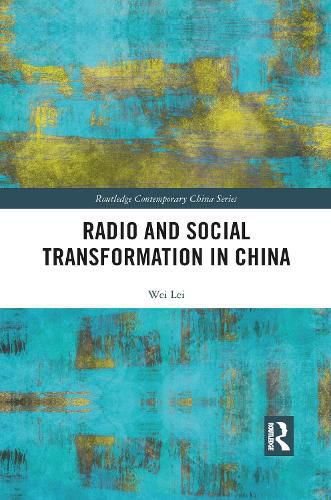Readings Newsletter
Become a Readings Member to make your shopping experience even easier.
Sign in or sign up for free!
You’re not far away from qualifying for FREE standard shipping within Australia
You’ve qualified for FREE standard shipping within Australia
The cart is loading…






The first systematic, comprehensive and critical English-language study of radio in China, this book documents a historical understanding of Chinese radio from the early twentieth century to the present.
Covering both public matters and private lives, Radio and Social Transformation in China analyses a range of themes from healthcare, migration and education, to intimacy, family and friendship. Through a concentrated and thorough scrutiny of a variety of new genres and radio practices in post-Mao China, it also investigates the interaction between radio and social change, particularly in the era of economic reform. Building on the core theoretical concept of ‘compressed modernity’, each of the radio genres explored is shown to embody China’s efforts to achieve modernity, while simultaneously exemplifying radio’s capacity to manage the challenges that have arisen from the country’s distinctive and perhaps unique process of modernization.
Written in an engaging style, this book makes an important contribution to radio history internationally. As such, it will be of great interest to students and scholars of broadcast media, radio and Communication Studies, as well as Chinese culture and society.
$9.00 standard shipping within Australia
FREE standard shipping within Australia for orders over $100.00
Express & International shipping calculated at checkout
The first systematic, comprehensive and critical English-language study of radio in China, this book documents a historical understanding of Chinese radio from the early twentieth century to the present.
Covering both public matters and private lives, Radio and Social Transformation in China analyses a range of themes from healthcare, migration and education, to intimacy, family and friendship. Through a concentrated and thorough scrutiny of a variety of new genres and radio practices in post-Mao China, it also investigates the interaction between radio and social change, particularly in the era of economic reform. Building on the core theoretical concept of ‘compressed modernity’, each of the radio genres explored is shown to embody China’s efforts to achieve modernity, while simultaneously exemplifying radio’s capacity to manage the challenges that have arisen from the country’s distinctive and perhaps unique process of modernization.
Written in an engaging style, this book makes an important contribution to radio history internationally. As such, it will be of great interest to students and scholars of broadcast media, radio and Communication Studies, as well as Chinese culture and society.